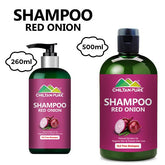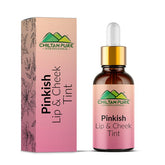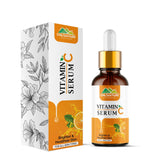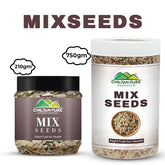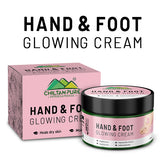What Exactly Is Lavender?
Lavender is a flowering plant in the mint family that easily identifies its sweet floral scent. It's believed to be native to the Mediterranean, the Middle East, and India, dating over 2,500 years. In ancient times, lavender was used as a holy herb. Additionally, it was often used to freshen up and give a light scent to personal items, such as clothes and hair. Lavender's role in the medical field as a jack of all trades. That's because the plant's parts contain different chemical compounds that positively affect your body. These compounds include flavonoids, vegetables, fruits, and coumarin. Both have anti-inflammatory and antioxidant actions. "Lavender essential oil is potent and contains vital compounds such as linalool. Linalool has been shown to reduce anxiety and blood pressure.How does it work?
- Supports sleep: Lavender can improve your body's melatonin levels, keeping a better night's sleep.
- Reduces pain and inflammation: The essential oil lavender can help relieve headaches.
- Helps with mood, anxiety, and depression: "Lavender is known for its ability to calm the nervous system, lift the mood and even lower blood pressure lavender usage to less anxiety and depression."
- Relieves menstrual pain: Women who smelled lavender for 30 minutes a day during the first three days of their period had less pain after two months—applying lavender essential oil to the abdomen will cause less menstrual pain.
- Kills harmful viruses and bacteria: People used lavender to clean hospital wards before we had antiseptics. "It's still used for its antimicrobial and antiviral properties."
- Reducing colic symptoms: Aromatherapy massage using lavender oil effectively reduced colic symptoms in infants, including how long they cried per week.
- Anxiety Management: The lavender essential oil can ease symptoms of anxiety; inhaling lavender reduces anxious feelings in the following situations:
- Preoperative anxiety
- Chest tube removal
- Cosmetic procedures
- Intensive care unit stays
Benefits of Lavender
Lavender promotes wound healing
 Using lavender essential oil can promote wound healing. It speeds up the healing rate, increases the expression of collagen, which keeps your skin elastic and your joints healthy, and enhances the activity of proteins involved in rebuilding tissue.
Using lavender essential oil can promote wound healing. It speeds up the healing rate, increases the expression of collagen, which keeps your skin elastic and your joints healthy, and enhances the activity of proteins involved in rebuilding tissue.
Lavender can increase deep sleep when inhaled
 It's no secret that lavender is used far and wide to promote good sleep. Before the widespread availability of lavender essential oils and lavender-scented products, like eye masks and heating pads, people would dry lavender flowers and place them in a bag under their pillow.
It's no secret that lavender is used far and wide to promote good sleep. Before the widespread availability of lavender essential oils and lavender-scented products, like eye masks and heating pads, people would dry lavender flowers and place them in a bag under their pillow.
Lavender has antibacterial and antifungal effects
Lavender is known for its attractive, calming scent, and it's also been found to be effective against many different species of bacteria, including staph infections.Lavender can protect your brain
 Growing evidence points to lavender potentially treating or alleviating neurological disorders. Lavender's impact on the nervous system suggested that lavender had neuroprotective properties or properties that can protect your nervous system.
Growing evidence points to lavender potentially treating or alleviating neurological disorders. Lavender's impact on the nervous system suggested that lavender had neuroprotective properties or properties that can protect your nervous system.
Lavender has the potential to reduce pain
 Lavender is often hailed for its ability to reduce pain, whether acute (temporary) or chronic (long-term). A study that looked at 100 ICU patients found significantly noticeable changes after massaging lavender essential oil into the feet of the patients. These included lowered blood pressure, heart rate, respiratory rate, wakefulness, and pain itself. When a person is in pain, blood pressure and heart rate can go up, showing that lavender may work as an all-natural pain reliever.
Lavender is often hailed for its ability to reduce pain, whether acute (temporary) or chronic (long-term). A study that looked at 100 ICU patients found significantly noticeable changes after massaging lavender essential oil into the feet of the patients. These included lowered blood pressure, heart rate, respiratory rate, wakefulness, and pain itself. When a person is in pain, blood pressure and heart rate can go up, showing that lavender may work as an all-natural pain reliever.
Lavender can help alleviate digestive problems
Lavender is said to help with different digestive issues like vomiting, nausea, intestinal gas, upset stomach, and abdominal swelling.Lavender may reduce stress and anxiety
 "Lavender smell increases brain activities. The smell affects mood, productivity, and mental illness by providing a calm sensation to the brain." It can improve anxiety-like restlessness, disturbed sleep, and even physical symptoms that anxiety can sometimes cause. Lavender was also shown to influence general well-being and quality of life positively. This is because lavender has anxiolytic or anxiety-relieving properties comparable to common anxiety medications.
"Lavender smell increases brain activities. The smell affects mood, productivity, and mental illness by providing a calm sensation to the brain." It can improve anxiety-like restlessness, disturbed sleep, and even physical symptoms that anxiety can sometimes cause. Lavender was also shown to influence general well-being and quality of life positively. This is because lavender has anxiolytic or anxiety-relieving properties comparable to common anxiety medications.
Lavender tea for better sleep
 De-stress and sleep easy, all by curling up before bed with a cup of calming lavender tea. A steaming cup of lavender has long been used to treat sleep disorders as the aromatic herb helps to calm brain function by triggering a response in your nervous system.
De-stress and sleep easy, all by curling up before bed with a cup of calming lavender tea. A steaming cup of lavender has long been used to treat sleep disorders as the aromatic herb helps to calm brain function by triggering a response in your nervous system.
Lavender for balancing the immune system
 Many fabulous teas out there are considered immune, and energy-boosting teas and lavender are among them. Antioxidants and anti-inflammatory properties lead to lavender being hugely beneficial for your immune system. Keeping your immune system healthy and working to the best of its ability is a sure-fire way of cutting down on your risks of catching illnesses and being at the top of your health game. Lavender tea contains lashings of vitamin C, magnesium, calcium, and a host of nutrients that help the body fight off all kinds of infections.
Many fabulous teas out there are considered immune, and energy-boosting teas and lavender are among them. Antioxidants and anti-inflammatory properties lead to lavender being hugely beneficial for your immune system. Keeping your immune system healthy and working to the best of its ability is a sure-fire way of cutting down on your risks of catching illnesses and being at the top of your health game. Lavender tea contains lashings of vitamin C, magnesium, calcium, and a host of nutrients that help the body fight off all kinds of infections.
Supports Digestive System
 Whether you are battling bloating, nausea, stomach upset, indigestion, or cramps – lavender tea can soothe the body, reduce muscle spasms, and use that same antispasmodic magic to reduce uncomfortable gas and streamline your system. The scent of lavender is said to trigger your bile production, which can help break down food, while that calming scent can help the body hold less tension.
Whether you are battling bloating, nausea, stomach upset, indigestion, or cramps – lavender tea can soothe the body, reduce muscle spasms, and use that same antispasmodic magic to reduce uncomfortable gas and streamline your system. The scent of lavender is said to trigger your bile production, which can help break down food, while that calming scent can help the body hold less tension.
Lavender tea for improving respiratory health
 For those who struggle with breathing problems, lavender can lend a little helping hand in making life more comfortable. The antimicrobial and anti-inflammatory properties get to work on the muscles in your chest and throat, making it easier to breathe and effectively dealing with any bacteria that could be causing chesty colds, coughs, and congestion.
For those who struggle with breathing problems, lavender can lend a little helping hand in making life more comfortable. The antimicrobial and anti-inflammatory properties get to work on the muscles in your chest and throat, making it easier to breathe and effectively dealing with any bacteria that could be causing chesty colds, coughs, and congestion.
Lavender for promoting hair growth
 Lavender can promote hair growth: The effects of lavender oil on hair growth are beneficial to those suffering from hair loss or anyone who desires long and luscious hair.
Lavender can promote hair growth: The effects of lavender oil on hair growth are beneficial to those suffering from hair loss or anyone who desires long and luscious hair.
Lavender for relieving migraines
 As lavender gets to work on reducing pain in the body, it can play an essential role in helping reduce headaches, muscle pain, backache, and any other issues you have. Essential oils have long played a role in helping to treat headaches naturally, and in trials and tests, lavender didn't skip a beat and came back as hugely beneficial in soothing an aching head.
As lavender gets to work on reducing pain in the body, it can play an essential role in helping reduce headaches, muscle pain, backache, and any other issues you have. Essential oils have long played a role in helping to treat headaches naturally, and in trials and tests, lavender didn't skip a beat and came back as hugely beneficial in soothing an aching head.
May Improve Skin Condition
 The antioxidants and volatile compounds found in lavender might seek out and neutralize free radicals in the body, which are the by-products of cellular metabolism. These free radicals can cause chronic disease, premature signs of aging, wrinkles, and inflammation, but lavender tea may help relieve those symptoms, improving your skin texture.
The antioxidants and volatile compounds found in lavender might seek out and neutralize free radicals in the body, which are the by-products of cellular metabolism. These free radicals can cause chronic disease, premature signs of aging, wrinkles, and inflammation, but lavender tea may help relieve those symptoms, improving your skin texture.
May Reduce Inflammation
 Lavender tea may help with various inflammatory conditions, including headaches, fevers, skin irritation, arthritis pain, and certain joint disorders. Inflammation can arise in multiple ways and lead to oxidative stress, but the active compounds in this tea may effectively prevent the body's natural responses.
Lavender tea may help with various inflammatory conditions, including headaches, fevers, skin irritation, arthritis pain, and certain joint disorders. Inflammation can arise in multiple ways and lead to oxidative stress, but the active compounds in this tea may effectively prevent the body's natural responses.
Reduces scars and blemishes
 Lavender water is stated to reduce the appearance of scars as it can regenerate damaged skin cells, and it prevents the scarring process as it supports the growth of cells and tissues. It can also stop bacteria formation, giving rise to breakouts and protecting the skin.
Lavender water is stated to reduce the appearance of scars as it can regenerate damaged skin cells, and it prevents the scarring process as it supports the growth of cells and tissues. It can also stop bacteria formation, giving rise to breakouts and protecting the skin.
Canker sores
Applying two drops of lavender oil to the affected area three times daily can improve canker sore healing and reduce canker painful swelling and pain.Post-Caesarean-Section (C-section) discomfort
Inhaling lavender essence while receiving pain killers through the vein can help reduce pain in women following a C-section.Uses of Lavender
Lavender is used- as an air freshener
- as distilled water for ironing
- for aromatherapy baths
- for house cleaning
- as a face toner
- as a rinse for your hair
- as a mosquito's repellent
- for manufacturing perfume
- for aftershave water
Amazing Fact
Lavender adds a delicious earthy-sweet aroma to tea, as well as a hint of fresh herbs and even notes of mint, apple, or any other treasures carried in with the wind. Lavender is frequently found as an ingredient in different tea blends, especially teas aimed at helping people turn down and relax or as a lovely bedtime beverage. However, you can drink lavender tea without any additional flavors and enjoy the pure lilac-colored flower itself.Precaution
Lavender is generally safe and has side effects free. People who are allergic to lavender flowers should also avoid lavender tea as they may suffer side effects like a rash, throat irritation, and breathing issues. Pregnancy: When pregnant, using lavender is not recommended, as it can stimulate menstruation, leading to a miscarriage or other complications in pregnant women.Frequently Asked Questions About Lavender
Is lavender safe for tea?
Yes, lavender is safe for tea but be sure it's a variety that can be consumed and if using fresh flowers, check for organic-only to avoid pesticides and other chemicals.What are some cool facts about lavender?
Lavender was used in ancient Egypt during the mummification process. Back in the Elizabethan times, when baths weren't common practice, lavender was used to perfume clothes and bed linen. The scent of lavender deters mice, flies, mosquitoes, and other pests from the area.Can lavender be poisonous?
Mild exposure to lavender is not generally harmful and may help with anxiety, depression, and stress. Lavender poisoning is possible and may cause vomiting, reduced appetite, and other symptoms.Can you eat lavender flowers?
Though most lavender is technically safe to eat, culinary lavender is typically cultivated from Lavandula angustifolia plants (commonly known as English or "true" lavender). It has less oil than the aromatic lavender used in perfumes or soaps.
Tags:




![Red Onion Oil 🧅 Reduces Hair Fall & Accelerates Hair Regrowth [پیاز کا تیل].. Trending.... 🔥 - ChiltanPure](http://chiltanpure.com/cdn/shop/products/red-onion-oil-reduces-hair-fall-amp-accelerates-hair-regrowth-piaz-ka-til-trending-394813_165x.jpg?v=1707464619)
![Red Onion Oil 🧅 Reduces Hair Fall & Accelerates Hair Regrowth [پیاز کا تیل].. Trending.... 🔥 - ChiltanPure](http://chiltanpure.com/cdn/shop/products/red-onion-oil-reduces-hair-fall-amp-accelerates-hair-regrowth-piaz-ka-til-trending-329640_165x.jpg?v=1708127491)
